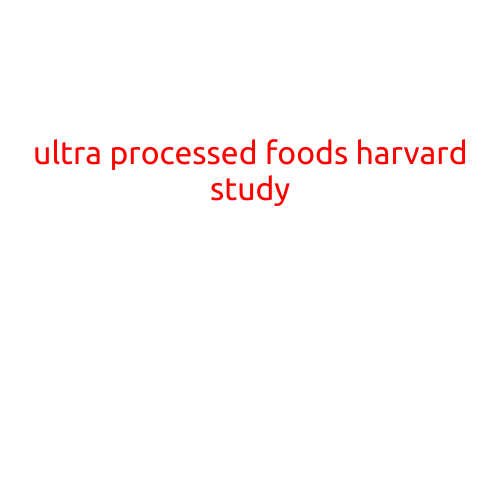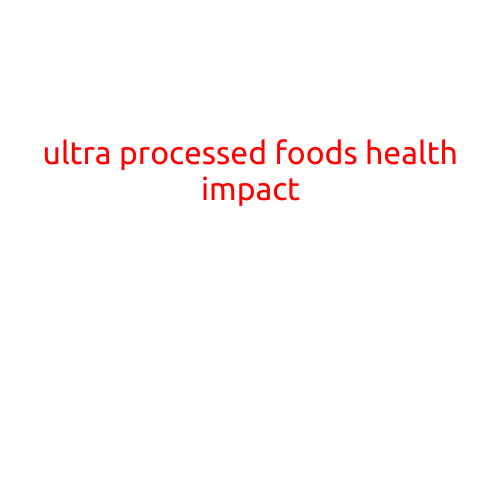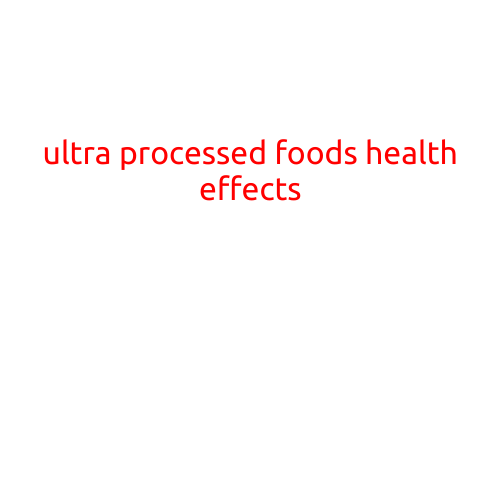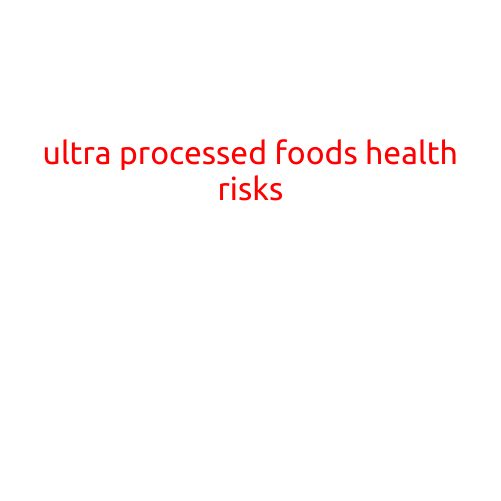
Ultra-Processed Foods Linked to Higher Risk of Death and Disease, Harvard Study Reveals
A groundbreaking study conducted by researchers at Harvard University has shed new light on the dangers of ultra-processed foods, revealing a strong link between consumption of these foods and an increased risk of death and disease.
The study, published in the Journal of the American Medical Association (JAMA), analyzed data from over 45,000 participants in the Nurses’ Health Study II and the Health Professionals Follow-up Study. The researchers discovered that individuals who consumed higher amounts of ultra-processed foods had a significantly higher risk of dying from heart disease, cancer, and other causes.
What are Ultra-Processed Foods?
Ultra-processed foods are highly manufactured and contain a combination of ingredients such as added sugars, unhealthy fats, and sodium. Examples of ultra-processed foods include:
- Ready-to-eat meals (e.g., frozen pizzas, microwaveable dinners)
- Packaged snacks (e.g., chips, cookies, crackers)
- Sugary drinks (e.g., soda, sweet tea, sports drinks)
- Refined grains (e.g., white bread, sugary cereals)
- Processed meats (e.g., hot dogs, sausages, bacon)
The study found that:
- Participants who consumed high amounts of ultra-processed foods had a 14% increased risk of dying from any cause, compared to those who consumed the lowest amounts.
- The risk of death from cardiovascular disease increased by 19% for every 10% increase in ultra-processed food consumption.
- The risk of death from cancer increased by 12% for every 10% increase in ultra-processed food consumption.
The Harvard researchers suggest that this increased risk may be due to the “biological effects of ultra-processed foods on gut health, inflammation, and glucose metabolism,” as well as the fact that these foods often displace more nutritious foods in the diet.
Practical Tips for Reducing Ultra-Processed Food Consumption
While the study highlights the dangers of ultra-processed foods, there is hope for improvement. Here are some practical tips to help you reduce your consumption of these foods:
- Shop the perimeter of the grocery store: Focus on whole, unprocessed foods like fruits, vegetables, whole grains, lean proteins, and healthy fats, which are often located on the perimeter of the store.
- Avoid packaged snacks: Choose whole fruits, nuts, and seeds instead of packaged snack foods.
- Cook from scratch: Prepare meals from whole ingredients rather than relying on pre-packaged meals or mixes.
- Read labels: Be mindful of ingredient lists and nutrition labels to avoid buying foods with added sugars, unhealthy fats, and excessive sodium.
- Plan ahead: Meal planning and preparation can help you avoid relying on ultra-processed foods when hunger strikes.
Conclusion
The Harvard study provides compelling evidence that ultra-processed foods can have devastating consequences for our health. By making conscious choices to reduce our consumption of these foods and opt for whole, nutritious options instead, we can significantly improve our overall health and well-being.





